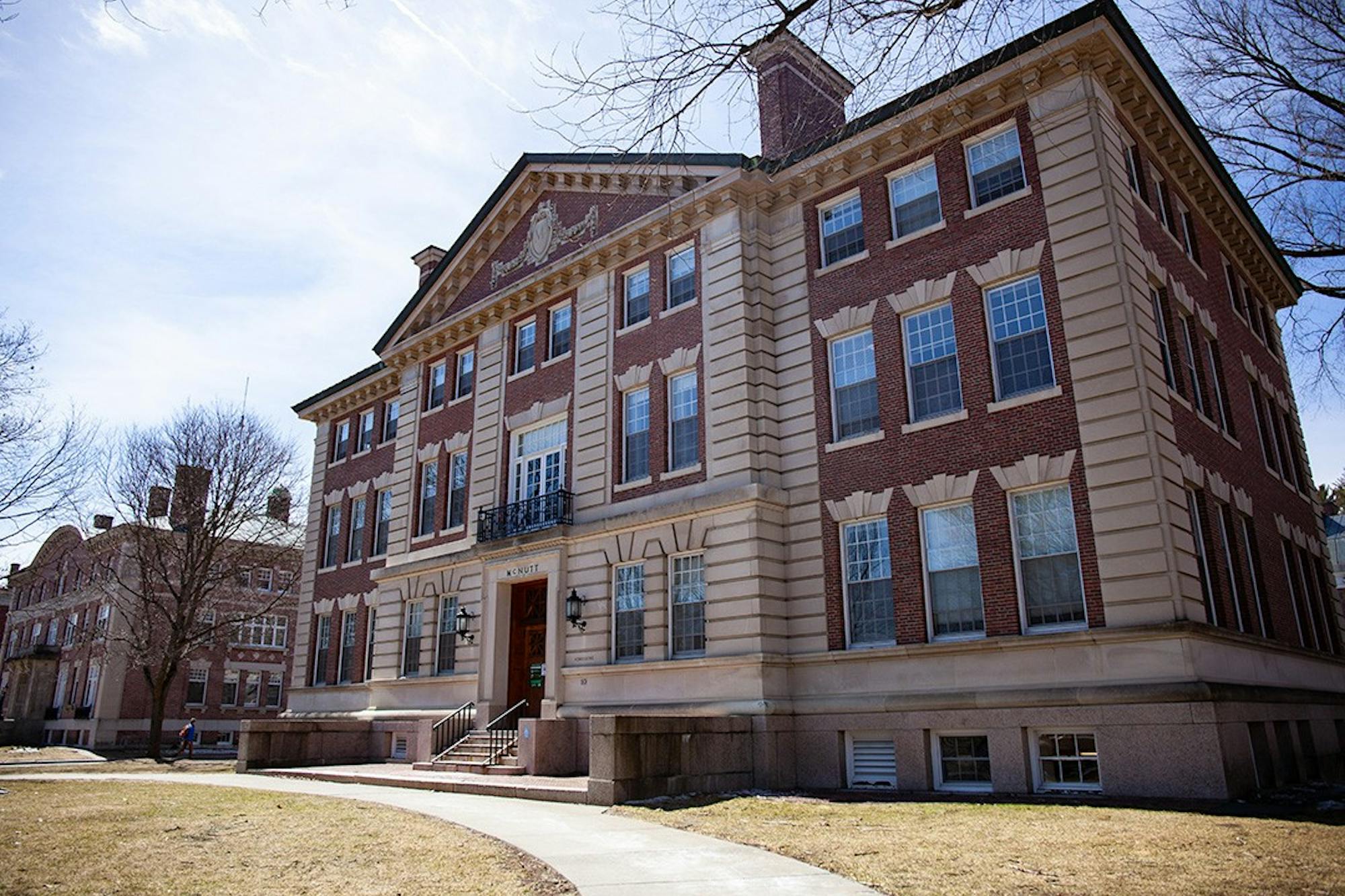On July 7, the U.S. Department of Justice filed a statement of interest supporting the student plaintiffs in an ongoing financial aid lawsuit against Dartmouth and 16 other colleges and universities. The suit, which began in January, claims that these institutions violated federal antitrust laws by colluding to limit financial aid and increase the cost of attendance.
According to the suit, the defendants formed a “cartel” through the 568 Presidents’ Group, a consortium created to standardize financial aid protocols in 1998.
The statement noted that the defendants’ interpretation and arguments made in a joint motion to dismiss the case in April rested on several “legal errors.” Furthermore, the statement supported the plaintiffs’ allegation that Dartmouth — as well as eight other universities in 568 Presidents’ Group — have colluded on price-fixing through using a “consensus methodology:” A formula to determine the amount of financial aid given to a student in need of a scholarship. This collusion “eliminates an important dimension of price competition among schools,” the report wrote.
Robert Gilbert, managing partner of Gilbert Litigators & Counselors –– one of three lead law firms for the plaintiffs, along with Roche Freedman and Berner Montauge and FeganScott –– wrote in an email statement to The Dartmouth that the firm is “ very pleased that the Department of Justice has filed this statement supporting Plaintiffs on the key issues in this case.”
The plaintiffs make up more than 170,000 students of middle and lower class families who were harmed by the defendants’ “price-fixing,” according to a press release from 568Cartel.com –– the website of the law firms representing the plaintiffs.
According to Gilbert, the College has the means within its unrestricted endowment to provide students with the additional financial aid that they need.
“The plaintiffs’ filing with the court on June 13 showed that by devoting only 2% of its unrestricted endowment to additional scholarships, Dartmouth could provide on average an additional $17,715 in scholarship funds to every financial aid student each year –– all while continuing to grow its endowment,” Gilbert wrote.
These universities could be immune from violating antitrust laws with the 568 Exemption of the Improving America’s Schools Act of 1994, which states that two or more colleges or universities may institute standard financial aid practices on the condition that all parties admit students regardless of the students’ “financial circumstances.”
However, the statement of interest also affirmed that for a college or university to qualify as need-blind, “all students” must be admitted on a need-blind basis regardless of how wealthy they are and when they are admitted, as stated in the 568 Exemption. The plaintiffs allege that Dartmouth and eight other universities are not need-blind — and therefore due not qualify for the 568 Exemption — due to their use of enrollment management, a software that helps with student admissions and can shape a class’s enrollment demographics, which may allow colleges to shape their class’s ability to pay.
“‘All’ means ‘all’ and does not allow the defendants to carve out thousands of waitlist students, or transfer students or any other group to be treated otherwise,” Gilbert wrote.
In addition, the statement of interest acknowledges that colleges and universities in the 568 Presidents’ Group with a need-blind admissions policy will be held accountable for colluding with colleges and universities without a need-blind admissions policy, as this violates the 568 Exemption.
According to the statement of interest, the defendants also misinterpreted the Sherman Antitrust Act of 1890, which outlaws monopolies in favor of free market competition.
“The Defendants suggest that plaintiffs cannot establish a Sherman Act violation unless Defendants have ‘actual knowledge’ that their conduct was unlawful,” according to the statement. “But that is not the law.”
In addition to Dartmouth, the other defendants in the lawsuit are Brown University, the California Institute of Technology, Columbia University, Cornell University, Duke University, Emory University, Georgetown University, Johns Hopkins University, the Massachusetts Institute of Technology, Northwestern University, Rice University, the University of Chicago, the University of Notre Dame, the University of Pennsylvania, Vanderbilt University and Yale University.
College spokesperson Diana Lawrence declined to comment on the U.S. Department of Justice’s statement of interest due to the fact that the case is still an “ongoing legal matter.”
Correction appended (July 15, 2:16 p.m.): A previous version of this article incorrectly referred to the Sherman Act of 1980. The act is titled the Sherman Antitrust Act of 1890. This article has been updated.
Kristin Chapman ’24 is an English major and Spanish minor from Rye, New York. She currently serves as the editor-in-chief and previously wrote and edited for the News section. In her free time, she enjoys reading books, running, hiking and doing yoga.




